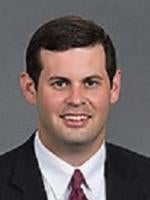On June 10, 2021, the Louisiana Legislature advanced a key piece of sports wagering legislation, Senate Bill 247, to Governor John Bel Edwards. If signed into law, Senate Bill 247 will establish the all-important regulatory framework for the conduct of sports wagering in Louisiana and put certain parishes one step closer to offering sports wagering.
In November 2020, voters in 55 of Louisiana’s 64 parishes voted to authorize sports wagering in their respective parishes. Sports wagering, however, is not yet being offered in the state because the Louisiana Legislature and the Louisiana Gaming Control Board (the Board) first need to implement operational-, tax-, and licensing-related rules to govern the activity. Senate Bill 247 and a few other pieces of legislation aim to do just that.
Senate Bill 247, if signed into law, will authorize the issuance of 20 licenses to operate sportsbooks in Louisiana. The licenses will first be made available to the land-based casino in New Orleans, the 15 riverboat casinos in Louisiana, and the four horse racing tracks. Prospective licensees will be required to apply for sports wagering licenses on forms prescribed by the Board and to undergo suitability investigations conducted by the Gaming Enforcement Division of the Louisiana State Police and the Board. In assessing an applicant’s suitability, the Board will be tasked with considering the applicant’s capitalization adequacy and financial stability, as well as the applicant’s history of material noncompliance with gaming regulations and involvement in litigation, among other factors.
Under Senate Bill 247, the deadline to submit completed applications for a sports wagering license is Jan. 1, 2022. Should the land-based casino or any riverboat casinos or horse racing tracks opt not to apply for a license or fail to submit a completed application by Jan. 1, 2022, the application process will be opened up to video poker and fantasy sports licensees. Under Senate Bill 247, if the number of applications received from eligible applicants exceeds the 20 available licenses, the Board must implement a concealed bid process and issue licenses to the applicants that have “the greatest potential for revenue generation in the state,” as determined in the Board’s discretion. Senate Bill 247 calls for the Board to implement a similar bid process should a sports wagering license become available at a later date.
Senate Bill 247, if signed into law, will allow sports wagering to be conducted remotely and in brick-and-mortar casinos. Licensees will be required to operate their sportsbooks themselves or by contracting with a sports wagering platform provider to do so. Sports wagering platform providers, like the 20 sports wagering licensees, will need to be licensed by the Board after undergoing suitability investigations. Senate Bill 247 tasks the Board with developing the application forms and suitability process with respect to sports wagering platform providers. Once licensed, sports wagering platform providers will be required to maintain books and records documenting their services and to file quarterly reports with the Board listing all of their contracts and services related to sports wagering. All servers maintained by sports wagering platform providers to process sports wagers will need to be housed and serviced in one of the 55 Louisiana parishes in which voters have approved of sports wagering.
The Board is also tasked by Senate Bill 247 with establishing rules and regulations governing the square footage, design, security and operational measures, and equipment that must be used or implemented and maintained by sports wagering licensees. Licensees will be required to maintain their sportsbooks in lounges restricted to patrons who are 21 years of age or older and to designate one or more key employees responsible for their sportsbooks. Licensees will only be permitted to accept sports wagers if the wagers are made in strict compliance with the rules and regulations implemented by the Board following the passage of Senate Bill 247. Of significance, the Board will need to implement certain rules and regulations to govern sports wagering conducted remotely via electronic devices. For example, Senate Bill 247 requires licensees offering electronic sports wagering to establish a process for patrons to create online accounts to submit sports wagers. Licensees will also need to implement geofencing and geolocation measures and to bear the related costs, to ensure that patrons participating in remote sports wagering are physically located in one of the 55 Louisiana parishes that have authorized the activity.
Governor John Bel Edwards has not indicated whether he will sign Senate Bill 247 into law. The governor has, however, already signed its companion bill, House Bill 697, to establish the tax structure and fee-related rules for the conduct of sports wagering. Under House Bill 697, the initial application fee for one of the 20 licenses to offer sports wagering is $250,000, and licensees will also be charged a license fee of $500,000 every five years. The initial application fee for a sports wagering platform provider permit is $100,000, and the permit fee payable by sports wagering platform providers is $250,000 every five years. House Bill 697 sets lower application and permit fees payable by sports wagering service providers and sports wagering distributors. A sports wagering service provider is defined in House Bill 697 as a suitable entity that contracts with a licensee to provide support services in connection with the licensee’s sportsbook, and a sports wagering distributor is defined as a suitable entity that markets, buys, sells, leases, services, or repairs sports wagering equipment. The application fee for a sports wagering service provider permit is $10,000, and the permit fee is $12,500 every five years. The application fee for a sports wagering distributor permit is $5,000, and the permit fee is $2,500 every five years. House Bill 697 also imposes a 10% tax on all bets placed by patrons who are on-site at a licensee’s facility and a 15% tax on all bets placed remotely.







 />i
/>i
